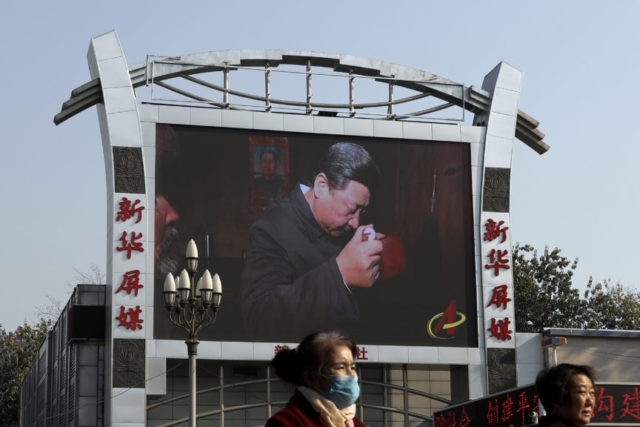The Chinese government is considering a plan to abolish the State Administration of Press, Publication, Radio, Film and Television (SAPPRFT) and replace it with an even more powerful censorship agency directly overseen by the State Council, which is the Chinese equivalent of a presidential cabinet.
The move would tighten the Communist Party’s control over media—and not just Chinese media, judging from recent applications of “sharp power” to enforce China’s speech controls against Western citizens.
“The proposed administration directly under the State Council will be responsible for drafting policies and measures for radio and television management and their implementation, coordinating development of broadcasting undertakings and industries, promoting institutional reform in the sectors, importing radio and television programs, and facilitating the sectors to go global,” China’s state-run Xinhua news agency reported on Tuesday.
“It is also expected that China Central Television, China Radio International and China National Radio may be merged to form a new state broadcasting giant,” adds Variety.
The move is part of a steady consolidation of media regulatory agencies in China, flowing inexorably toward the proposed conclusion of a single cabinet-level agency controlling all forms of expression. As Variety notes, SAPPRFT has only been around since 2013; before that, separate regulatory agencies handled print publications versus radio, television, and film.
Deadline further observes that Xinhua’s announcement of the new regulatory proposal did not explicitly mention film, but SAPPRFT controlled access to the Chinese box office, so it is hard to imagine the State Council’s super-agency would not inherit those responsibilities as well.
China has thus far shown little concern about scaring away foreign movie companies with overbearing regulations. To the contrary, Deadline quotes Communist Party editorials worried that China “has stunning economic might” but has “not yet become a leading power in terms of ideology and information.”
The Hollywood Reporter puts the regulatory reshuffle in the context of President Xi Jinping promising to streamline the bureaucracy and reduce government agencies, while simultaneously assuming dictatorial powers and arranging to rule over China indefinitely:
The changes are just one part of an ambitious government revamp intended to eliminate bureaucracy while boosting the centrality of President Xi Jinping and party leadership to all aspects of policymaking.
Other changes include the merger of the country’s banking and insurance regulators and establishment of special agencies to oversee immigration and military veteran affairs. All told, the number of ministries under China’s cabinet will be reduced from 34 to 26. On Sunday, presidential term limits were removed from China’s constitution, opening the door for Xi to remain in office indefinitely.
China’s business elite are as hungry for censorship as Communist Party officials. Bloomberg Technology noted last week that China’s tech billionaires owe their fortunes to Xi’s protectionist policies, including white-knuckled speech controls and a massive Internet firewall that lockout foreign information technology competition.
China’s latest adventure in censorship, incidentally, involved blocking all web searches for a viral video of a reporter who rolled her eyes after one of her colleagues asked a ridiculous softball question at a meeting of the National People’s Congress. The reporter who performed the eye roll, Liang Xiangyi of financial news service Yicai Media, was effectively erased from the Chinese Internet in a matter of hours.
The video is hilarious, especially if you keep in mind that the reporter in red is basically asking a Communist official, “What are your plans to make China’s amazing opening to the world even more awesome?”

COMMENTS
Please let us know if you're having issues with commenting.